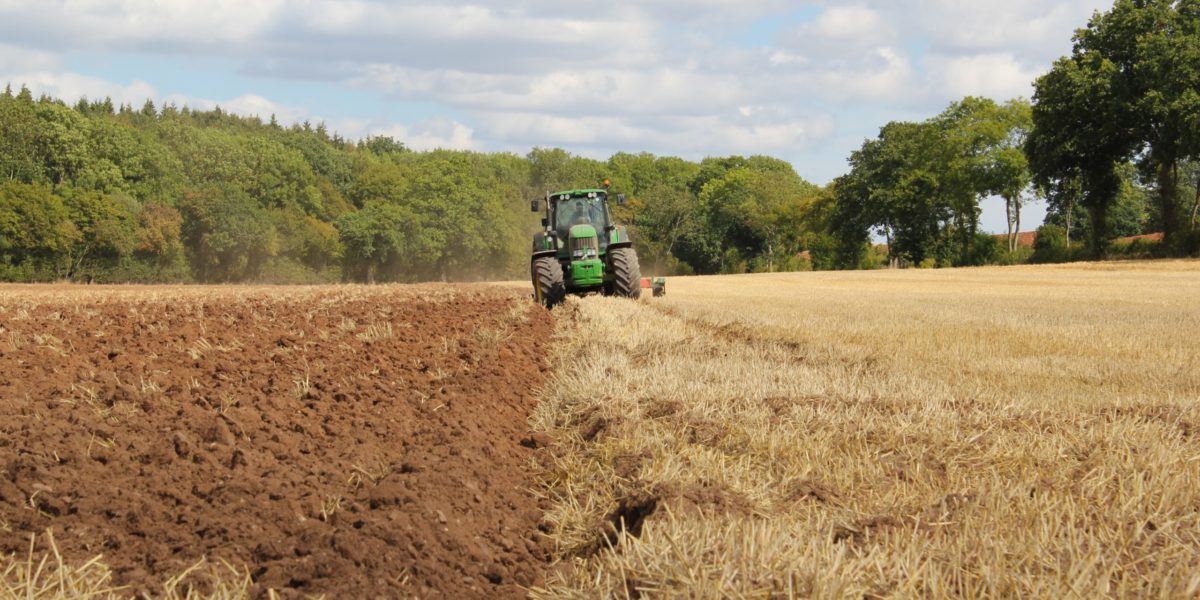As I write, the federal, provincial, and territorial agricultural ministers are meeting in Saskatoon to discuss the Agricultural Policy Framework. The current framework expires in March of 2023. In 2021, the ministers met in Guelph to agree on foundational principles for the 2023-2028 Agricultural Policy Framework. The result was the Guelph Statement.
Across the globe, and this year particularly in southern Europe, fires and heat waves are raging. Last year Canada was the site of incredible forest fires and also flooding — in different regions of British Columbia as well as other areas. Parts of the prairies were parched. There is little doubt that we need to be much more innovative and aggressive in our approach to reducing carbon emissions — and safeguarding key resources like food. The future is now as they say!
As the two-day agricultural ministers meeting wraps up, it shouldn’t be too hard to see the links between agriculture, carbon emissions and climate change. The media release following the meeting acknowledges this (insert the link)
Agricultural industry must be climate friendly
How we produce food and the practices undertaken on the farm are a big part of the picture. The farming sector is responsible for about 12 per cent of Canada’s greenhouse gas emissions. The model of Canadian farming is highly dependent on fossil fuels. So just like retrofitting buildings to help mitigate emissions, we need to move as a society to implement food production policies at all jurisdictional levels to support practices that mitigate climate change.
Darrin Qualman, author of Civilization Critical and a member of the Farmers for Climate Solutions policy group explains in this video, the dilemma in our current practices, the need to challenge fossil fuel dependence, and how low-input farming might reduce the impact of climate change and potentially help keep family farmers on the land at the same time.
In preparation for the Saskatoon meeting Farmers for Climate Solutions, a cross-country, farmer-led coalition of farm, food, and supportive organizations, founded in early 2020, released a document calling for a fundamental shift toward “beneficial management practices” or BMPs. The document is a pathway toward supporting resilience and change in the agricultural sector. The report titled “Rooted in Climate Action” provides a detailed list of reader friendly policy actions, complete with explanations, quantifiable reductions in emissions as well as the financial support needed to apply these policies nationally. An estimated investment of $643 million annually to apply measures that will result in a 14 per cent decrease in emissions.
“Rooted in Climate Action” presents five priority pillars for action: nitrogen management; manure storage and handling; livestock management; soil management; and wetland and tree management.
It is an optimistic and detailed approach. In many ways it is inspiring and hopeful. Amid all of the late night news, this report is constructive and feels doable. It is indeed a pathway toward the possible.
The National Farmers Union (NFU) is also calling on the agricultural ministers to implement policy changes that recognize the urgency of climate action and offer supports to help farmers incorporate adaptation and mitigation into farm practices. At the same time the NFU is calling on the federal government to adopt policies to help farmers weather the multi-facetted economic storms on the horizon. Those include inflation, rising interest rates, and the recognition that food production corporations are making windfall profits. A recent column on rabble.ca titled “Who is taking the bread?” outlines the mega-profits being made by some food corporations.
The NFU’s open letter to agricultural ministers meeting on the Agricultural Policy Framework provides much more detail on the pressures facing family farmers in Canada today.
Some of the NFU policy recommendations include:
- Increase infrastructure capacity for local, regional and domestic agricultural production, processing, storage, transportation and distribution
- Uphold our supply management systems
- Help farmers reduce emissions and adapt to climate change by establishing a Canadian Farm Resilience Administration
- Reverse decline in farm numbers by supporting intergenerational farm transfer, including non-family succession, to promote access to farming for new and young farmers and marginalized groups.
At the end of last week’s meeting there was an official statement and a backgrounder from the Saskatoon meeting noting agreement in principle for the Sustainable Canadian Agricultural Partnership and a commitment to strengthen the principles outlined in the Guelph Statement. The federal government also promised an increase in funding.
In response, the statement from Farmers for Climate Solutions issued this week emphasizes:
“Farmers for Climate Solutions sees many positive outcomes in the Sustainable Canadian Agricultural Partnership, but the measures announced by the ministers fall short of the broad, systemic change that is necessary to tackle the climate crisis and make Canadian farms more resilient in the long term. Much work remains to be done, and we hope the upcoming bilateral negotiations between the federal government and individual provincial and territorial governments will be an opportunity to increase climate ambition.”
The devil is in the details as they say — and time will tell if all levels of government step up and take action that is anywhere near what is required. Meanwhile, it is clear what some farm groups and allies are asking for! And more is needed — urgently!!



